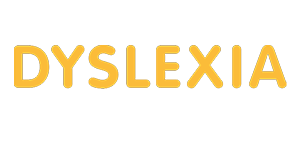Understanding the Link Between Working Memory and Dyslexia

November 25, 2023
Dyslexia, a common learning disability, affects millions of individuals worldwide. While it primarily manifests as difficulties in reading and spelling, it also affects many other areas such as organisational skills, time-keeping, multi-tasking and more! Did you know that research has shown a significant connection between dyslexia and working memory.
Working memory is like the brain's "notepad" that helps us temporarily store and manipulate information. It plays a crucial role in reading, as it's responsible for tasks such as remembering the sound-symbol correspondence and processing complex sentences. For individuals with dyslexia, working memory challenges can exacerbate their reading difficulties.
One of the key aspects of this connection lies in phonological processing. Dyslexic individuals often struggle with phonological awareness, the ability to recognise and manipulate the sounds in words. Working memory deficits can make it even harder for them to hold and process phonological information, leading to reading problems.
Additionally, working memory helps us remember sight words, which are commonly used words that can't be sounded out phonetically. Dyslexic individuals often find it challenging to memorise these words due to working memory limitations, making their reading fluency suffer.
So, what can be done to support individuals with dyslexia and their working memory difficulties?
- **Early Intervention**: Identifying dyslexia early and providing targeted interventions can help
improve working memory skills. - **Structured Learning**: Structured literacy programmes that emphasise phonological awareness
and provide repetitive practice can aid in developing working memory and reading skills. - **Multisensory Techniques**: Incorporating multiple senses in learning, like touch and sound, can
enhance working memory retention. - **Technology**: Assistive technology tools can help dyslexic individuals access text in ways that
alleviate the working memory load, such as text-to-speech software.
In conclusion, the link between working memory and dyslexia is a crucial aspect of understanding and addressing this learning difficulty. By recognising the challenges that working memory deficits pose for individuals with dyslexia, educators, parents, and therapists can implement effective strategies to support their learning journey and reading success.
